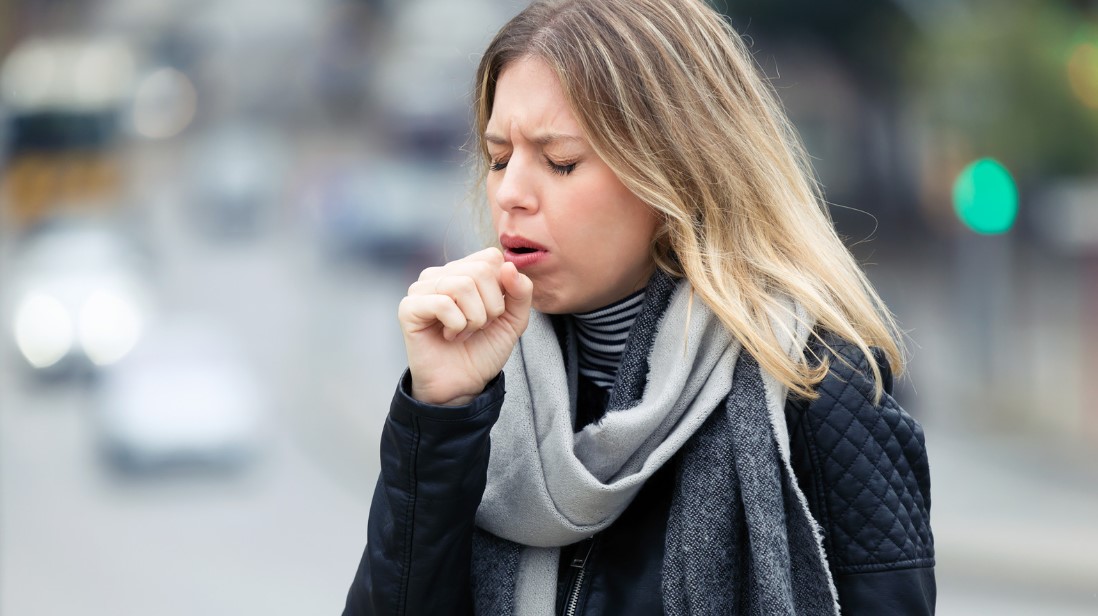Are you tired of the relentless coughing that seems never to give you a moment’s peace? Whether it’s caused by a pesky respiratory infection, nagging allergies, or an ongoing condition like asthma, we understand how frustrating and uncomfortable it can be. But fear not! In this blog post, we’ll share some tried-and-true tips for quick relief from coughing. From simple home remedies to lifestyle changes and medical intervention when necessary, we’ve got you covered. So sit back, relax, and say goodbye to that incessant cough once and for all!
Understand the Causes of Coughing

Coughing, though uncomfortable, can stem from various factors like respiratory infections, allergies, and chronic conditions such as asthma.
- Respiratory Infections: Common colds or flu often accompany coughs as the body clears mucus from the airways.
- Allergies: Triggering an immune response, allergies release histamines, leading to throat inflammation and irritation.
- Chronic Conditions: Asthma causes persistent coughing due to airway inflammation and narrowing.
Identifying your cough’s cause is crucial for targeted relief:
- For allergy-related coughs, avoiding triggers like pollen helps.
- Staying hydrated aids in recovery from respiratory infections.
Understanding these nuances guides the choice of strategies to stop coughing:
- Over-the-counter medications and natural remedies like ginger-based concoctions offer relief based on the root cause.
Delving into the causes and understanding their nuances empowers you to find effective solutions for managing this bothersome symptom. Remember, individual situations vary, so experimentation and seeking professional advice will help determine what works best for stopping your particular type of cough.
How to Stop Coughing?
Quick Relief Measures

When a persistent cough lingers, quick relief is essential. Here are simple and effective measures to alleviate discomfort:
- Stay Hydrated: Drinking plenty of fluids helps thin mucus and soothe the throat.
- Soothing Teas with Honey: Enjoy warm teas with honey for instant comfort, leveraging both warmth and antibacterial properties.
- Steam Inhalation: Combat congestion by breathing deeply over a bowl of hot water with a draped towel, loosening mucus and easing airway congestion.
- Over-the-counter cough Medicines: Consider these for temporary relief. Carefully read labels and consult a pharmacist to choose the right medication for your specific symptoms.
Incorporate these quick relief measures into your routine for instant comfort when facing an incessant cough.
Natural Remedies for Cough Relief

Relieving a nagging cough becomes simple with natural remedies, providing not only comfort but also contributing to overall well-being.
- Ginger: With anti-inflammatory properties, ginger soothes irritated airways and reduces coughing. Whether in tea or meals, this versatile root has been a natural healing agent for centuries.
- Honey and Lemon: A dynamic duo for cough relief, honey soothes the throat, while lemon provides immune-boosting vitamin C. Combining them in hot water or herbal tea creates an effective home remedy.
- Herbal Teas: Chamomile, peppermint, and liquorice roots offer nature’s gifts for respiratory health. Chamomile calms inflammation, peppermint acts as a decongestant, and liquorice root soothes and acts as an expectorant.
Explore these natural remedies cautiously and consult your healthcare provider if needed to discover new ways to find relief from coughing while promoting overall well-being.
Lifestyle Changes for Cough Prevention

Lifestyle adjustments are pivotal in preventing coughing and fostering long-term respiratory health. Sustainable changes to your environment can notably reduce vulnerability:
- Environmental Adjustments: Avoid exposure to irritants like cigarette smoke. Keep indoor air clean with regular dusting, carpet vacuuming, and air purifiers. Ensure proper ventilation to minimize allergens.
- Clean Living Space: Regularly disinfect surfaces, wash bedding frequently, and manage pet allergens by keeping them off furniture.
- Dietary Modifications: Boost respiratory health by incorporating antioxidant-rich foods like fruits, vegetables, nuts, and seeds. Stay hydrated with ample water intake throughout the day.
Implementing these lifestyle changes into your daily routine reduces the frequency and severity of coughing while promoting overall respiratory well-being. Take control of your health today!
Medical Interventions

For persistent or severe coughs, professional medical interventions become crucial, complementing home remedies and natural alternatives.
- Knowing When to Seek Help: If your cough persists for more than a few weeks and is accompanied by symptoms like chest pain or difficulty breathing, or if you have a chronic condition like asthma, consult a healthcare professional for personalized advice.
- Prescription Medications: Tailored to the underlying cause, these medications are essential for treating stubborn coughs. Anti-inflammatory medications or bronchodilators may be recommended for allergies or asthma, while cough suppressants can aid in healing and restful sleep.
- Balancing Approaches: Medical interventions should be integrated with natural remedies, forming a comprehensive strategy for both immediate relief and long-term management. This balanced approach ensures a holistic response to coughing.
Always consult a healthcare professional before starting any new medication regimen. By working collaboratively with experts and incorporating their guidance, we can find effective solutions tailored to individual needs in managing persistent coughs.
| Quick Relief Measures | |
| Stay Hydrated |
Drink fluids to thin mucus and soothe the throat.
|
| Soothing Teas with Honey |
Enjoy warm teas with honey for comfort and antibacterial benefits.
|
| Steam Inhalation |
Breathe over hot water to loosen mucus and ease congestion.
|
| Over-the-counter Medicines |
Consider for temporary relief after consulting a pharmacist.
|
| Natural Remedies for Cough Relief | |
| Ginger |
Soothes airways and reduces coughing with anti-inflammatory properties.
|
| Honey and Lemon |
Combines honey’s soothing effects with vitamin C from lemon for immune support.
|
| Herbal Teas |
Chamomile, peppermint, and liquorice roots offer respiratory health benefits.
|
|
Lifestyle Changes for Cough Prevention
|
|
| Environmental Adjustments |
Avoid irritants and maintain clean indoor air for respiratory health.
|
| Clean Living Space |
Disinfect surfaces, wash bedding, and manage pet allergens.
|
| Dietary Modifications |
Include antioxidant-rich foods, fruits, vegetables, nuts, and seeds.
|
| Medical Interventions | |
| Knowing When to Seek Help |
Consult if cough persists or worsens, especially with chest pain or difficulty breathing.
|
| Prescription Medications |
Tailored treatments for allergies, asthma, or stubborn coughs.
|
| Balancing Approaches |
Combine medical interventions with natural remedies for comprehensive management.
|
| Consultation with Healthcare Professional |
Always seek professional advice before starting new medications.
|
Preventive Measures

Prevention is the key to a cough-free future. Proactive steps significantly reduce the frequency and severity of coughing episodes.
- Vaccinations: Getting vaccinated against respiratory infections, like influenza and pertussis, strengthens the immune system, reducing susceptibility to viruses.
- Build a Robust Immune System: Regular exercise and proper nutrition enhance overall health and lung function, lowering the risk of respiratory illnesses that trigger coughing.
- Consider Age and Stress: Understand how age and stress influence susceptibility to coughing. Ageing may weaken the immune system, and stress management techniques are vital for optimal respiratory health.
Incorporate these measures into your daily routine for a healthier future with fewer coughing episodes. Prevention focuses on long-term strategies beyond quick relief, ensuring optimal respiratory well-being.
When to See a Doctor?
Coughing is a common occurrence and often resolves on its own. However, certain situations warrant a visit to the doctor. If you have a persistent cough that lasts for more than three weeks, it’s advisable to seek medical attention. Additionally, if your cough is severe, accompanied by chest pain, difficulty breathing, wheezing, coughing up blood, unexplained weight loss, or night sweats, these could be signs of a more serious underlying condition that requires evaluation by a healthcare professional.
Individuals with chronic conditions such as asthma, COPD, or immunocompromised individuals should also consult a doctor if their cough worsens or is accompanied by new symptoms. It’s essential to listen to your body and seek medical advice promptly when experiencing concerning symptoms related to coughing to receive proper diagnosis and treatment.
Conclusion
Implementing a comprehensive approach involving quick relief measures, natural remedies, lifestyle changes, medical interventions, and preventive measures effectively stops coughing and promotes respiratory well-being.
Tailor your strategies based on the cause, stay hydrated, explore natural remedies, make lifestyle adjustments, seek medical advice when necessary, and prioritize prevention through vaccinations and immune system support.
By incorporating these strategies into your routine, you can reduce the frequency and severity of coughing episodes, taking control of your respiratory health for a healthier, cough-free future.
FAQs – How to Stop Coughing?
How to stop a tickly cough?
Tickly coughs, also known as dry coughs, can be particularly bothersome. Here are some strategies to help alleviate a tickly cough:
- Drink Warm Fluids: Warm tea or water can help soothe your throat.
- Use a Cough Suppressant: Over-the-counter cough medicines can help reduce the urge to cough.
- Try Steam Inhalation: Inhaling steam from a hot shower or bowl of hot water can help moisten your airways.
- Prop Yourself Up: Elevating your head while sleeping can minimize irritation.
- Avoid Triggers: Stay away from allergens or irritants that can worsen your cough.
If your tickly cough persists for more than a few weeks, consult a healthcare provider for a proper diagnosis and treatment plan.
Why am I coughing so violently?
Violent coughing can be caused by various factors, including respiratory infections, allergies, asthma, or underlying health conditions. It’s essential to identify the root cause of your violent coughing to determine the appropriate treatment. If you experience persistent or severe coughing episodes, seek medical advice promptly.
How long is too long for a cough?
In general, a cough that lasts longer than three weeks or is accompanied by other concerning symptoms such as chest pain, difficulty breathing, fever, or coughing up blood should prompt a visit to a healthcare provider. Persistent coughs may indicate an underlying medical issue that requires evaluation and treatment.
Is a dry or wet cough better?
Both dry and wet coughs serve a purpose in clearing irritants from the airways. A wet cough helps expel mucus, while a dry cough may be irritating but can clear the throat. The “better” cough depends on the underlying cause and individual symptoms. If you’re unsure which type of cough you have or if your cough is persistent, consult a healthcare professional for proper assessment and management.

